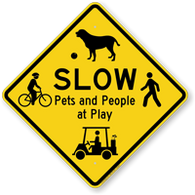What is Defensive Driving Actually?
13th Oct 2017
Defensive driving is one of those things you’ve probably heard about, but you’re not exactly sure what it actually is. According to the National Safety Council’s Defensive Driving Course, it is “driving to save lives, time and money, in spite of the conditions around you and the actions of others.”
Now what that actually means is that you drive as though the driver of every other vehicle you see got their license in a lucky packet. Every pedestrian either has a serious death wish or is delusional and believes they are invincible. Also, Mother Nature is out to get you!

Motorcyclists - The First Defensive Drivers
If you are a long-time motorcyclist, then defensive driving is probably second nature to you. When you’re traveling on two wheels, there is nothing but a few pounds of plastic and if you’re smart - a few meters of leather to protect you.
So you learn to watch out for long-haul drivers who are too tired to focus properly, distracted motorists who think they’re the only vehicle on the road and insane pedestrians who think that playing Dodgeball with a car is a great idea.
And considering the speeds that bikers are often traveling at - reacting in a split second can easily mean the difference between life and death. You might say that defensive drivers are paranoid drivers. And you wouldn’t be completely wrong.
The Benefits of Defensive Driving
But a defensive driver is actually just someone who is hyper-aware of what is going on around them. They have taken note of potential hazards and they instinctively have a plan of action in case any of those hazards arise.
There are of course other benefits to taking a defensive driving course, although these vary depending on which state you live in. In some states, taking a defensive driving course can reduce your insurance rates by as much as ten percent for three to five years.
If you are ticketed for a traffic offense, your record may be less negatively impacted and your insurance rates may not increase if you can prove you have taken a course. But that’s only if you take an official state licensed course either online or in a classroom setting.
Defensive Driving In Practice
While the things you learn from these defensive driving courses are valuable, there is a very big difference between book knowledge and actually putting that knowledge to use. You need more than an online course or a classroom lecture to truly call yourself a defensive driver.
For example, some things that good defensive drivers instinctively do include the following:
- Slowing down at intersections, and checking what the vehicles in the cross street are doing. This gives them a little more time to react if one of those drivers jumps the light, skips a stop street or has lost control of their car.
- Keeping a safe traveling distance and watching what the car directly ahead of them is doing, but also what the cars ahead of them are doing. This allows them to react in time to avoid a collision, even if the driver in front of them is slow to react to something that happens ahead of them.
- Stopping a fair distance away from the vehicle in front of them at traffic lights or stop streets, and keeping an eye on the traffic coming up behind them. This allows them to hopefully avoid hitting the car in front of them if another vehicle strikes them from behind.
- Making sure they stay out of the blind spots of other vehicles, but especially trucks and other heavily loaded vehicles. Making sure that they are always visible helps them to avoid getting side-swiped when those vehicles change lanes.
Good defensive drivers also have some basic advanced driving skills. Knowing what to do if their car aquaplanes or skids helps them to avoid collisions in heavy rain or on icy roads. The extra split second they gain from performing an emergency stop without hesitation means they might actually avoid the hazard that suddenly appeared in front of them.
It takes time to become a really good defensive driver but spending that time and the money to do it is worth the effort. Not only will your insurance company appreciate it, your family will be happy when those skills help you and them arrive alive!




